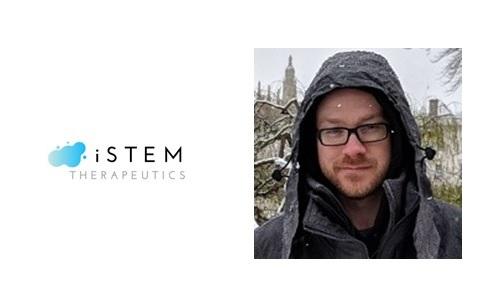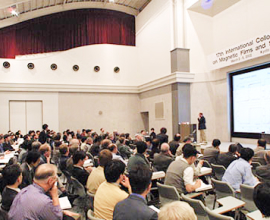2020/11/06(金)
Jayden Smith, PhD, Head of Research, iSTEM Therapeutics
To Establish a New Era of Autologous Stem Cell Medicines through Regenerative Neuroimmunology
iSTEM Therapeutics (iSTEM Tx) is a cell therapy company developing advanced therapies for Regenerative Neuroimmunology. Our core product, induced neural stem cells (iNSCs), represents a translation of state-of-the-art cell reprogramming technologies into next-generation stably-expandable neural stem cell therapeutics.
With iNSCs we aim to treat chronic inflammatory diseases of the central nervous system (CNS) that result in irreversible neurological damage and disabilities with extremely high social costs. Our lead indication is progressive Multiple Sclerosis (MS), a condition currently lacking effective therapeutic options.
Our operations are focused on the research and development (R&D) of autologous non-haematopoietic stem cell therapeutics founded on long-standing academic research led by Stefano Pluchino at the University of Cambridge and cell manufacturing technology licensed from the University of Bonn, with a clear roadmap for future clinical trials in progressive MS and potential expansion to other CNS conditions.
iSTEM Tx's vision is to improve quality of life by promoting brain regeneration, slowing disease progression, and thus reducing the costs of care by introducing breakthrough stem cell innovations. Having the chance to establish brain-specific stem cell lines from the patient's own somatic tissues represents a unique approach to the fields of Regenerative Medicine and Neurology.
Jayden Smith, PhD, Head of Research, iSTEM Therapeutics

[Summary]
Multiple sclerosis (MS) is the most common neuroinflammatory disease in young adults, and is associated with significant personal and socioeconomic burdens. Most patients ultimately develop a progressive form of the disease which will result in a continuing worsening of disability for the rest of their lives. While there are a number of therapeutic options for early/active MS, there is a substantial unmet need for therapies able to arrest and repair the damage associated with progressive MS.
Compelling preclinical evidence supports the use of stem cell therapies in treating progressive MS, most notably somatic neural stem cells (NSCs) or those derived from induced pluripotent stem cells (iPSCs). Nevertheless, clinical translation of these products is hampered by practical, ethical, and safety concerns.
At iSTEM Therapeutics we are developing induced NSCs (iNSCs), directly reprogrammed from a patient's own skin cells, as a safe, easy and convenient source for cell therapies. With convincing preclinical safety and efficacy data in hand, we are developing our manufacturing plans and looking ahead towards first-in-human studies in the treatment of progressive MS and exploration of broader applications beyond.
[Profile]
Jayden Smith (Head of Research, iSTEM Therapeutics) possesses a diverse research background spanning more than 15 years, from a PhD (James Cook University, Australia) and postdoctoral position (Trinity College Dublin, Ireland) exploring the stereoselectivity and photochemistry of metal-complex--DNA interactions, to postdoctoral research into combinatorial therapies for spinal cord injury involving RNA nanotherapeutics and neural stem cell transplantation (University of Cambridge, UK).
Jayden maintained involvement in academic research while also transitioning into commercial endeavours, joining Cambridge Innovation Technologies Consulting Ltd. as a Senior Research Associate and Project Manager. Here he has led the company's collaboration in European Commission-funded research consortia as well as pursuing in-house R&D projects, including that giving rise to iSTEM Therapeutics.
As Head of Research at iSTEM Tx Jayden aims to advance the company's induced neural stem cell (iNSC) technology through final preclinical characterisation, develop a manufacturing roadmap, and propel this promising cell therapy into first-in-human clinical trials for the treatment of progressive multiple sclerosis.




















